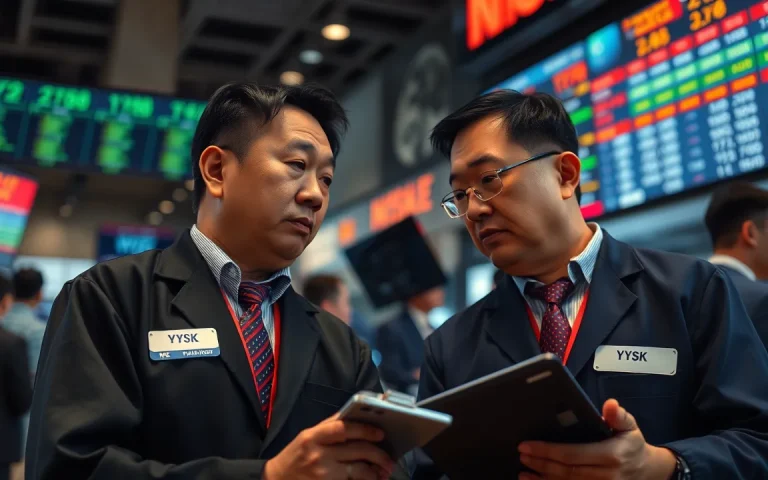Asian stock markets began the trading week with a mixed and cautious performance on Monday, as investors assessed the impact of US President Donald Trump’s decision over the weekend to impose a 30% tariff on the European Union and Mexico.
This latest move in the ongoing trade saga has injected fresh uncertainty into global markets, leading to a flat-to-lower start for Indian benchmarks like the Sensex.
The primary focus for investors at the start of the week was President Trump’s announcement on his social media site, Truth Social, on Saturday. He revealed that 30% tariffs on both the EU and Mexico would take effect starting August 1.
In response, leaders from both the EU and Mexico have indicated their intention to continue negotiating with the Trump administration this month in an attempt to agree on a lower tariff rate.
This development has created a cautious atmosphere across the region. Japan’s benchmark Nikkei 225 lost 0.33% as of 8:10 a.m. Singapore time, while the broader Topix index ticked down 0.21%.
In contrast, South Korea’s Kospi index was up 0.22%, and the small-cap Kosdaq moved up 0.19%. Over in Australia, the S&P/ASX 200 benchmark was down 0.1%.
Chinese and Hong Kong-listed stocks started the day marginally higher amidst the choppy trade seen in other key Asia-Pacific markets.
As of 9:40 a.m. local time, the Hang Seng Index had added 0.14%, while the mainland’s CSI 300 had moved up 0.16%.
Economic data delivers surprises in Singapore and Japan
Investors are also keeping a close watch on a slew of economic data points today. A major surprise came from Singapore, whose economy grew at a robust 4.3% year-over-year in the second quarter.
This figure represents an acceleration from the 3.9% growth seen in the first quarter and comfortably beat the 3.5% forecasted by economists polled by Reuters.
On a quarter-on-quarter basis, Singapore’s GDP grew by 1.4%, a significant turnaround from the 0.5% contraction recorded in the previous quarter.
In Japan, data showed that core machinery orders fell by 0.6% in May from the previous month on a seasonally adjusted basis, according to the country’s Cabinet Office.
While this decline was slightly better than the 1.5% contraction estimated by economists in a Reuters poll, it followed a steep 9.1% decline in April.
These core machinery orders, which exclude volatile items, are regarded as a key gauge of capital expenditure and business confidence.
On a more positive note, on a year-on-year basis, core orders grew 4.4%, beating the 3.4% rise forecasted, according to LSEG data.
Indian markets open lower amid global uncertainty
Indian equity indices opened Monday’s trading session on a flat-to-lower note, with the new U.S. tariffs on the EU and Mexico leading to a weak sentiment across Asian markets.
The NSE Nifty 50 opened below the 25,150 mark, while the BSE Sensex fell to around 82,400. In line with the headline indices, Bank Nifty was flat below 56,750.
Similarly, the small and midcap sectors traded cautiously, though the Nifty Midcap 100 did manage to open 0.10% higher at 58,700.
Investors in India will also be closely watching the country’s inflation reading for June, which is due today.
Economists polled by Reuters expect India’s consumer price inflation reading to come in at 2.5% year-on-year, down from 2.82% the month before.
The post Asian markets open: Nikkei falls 0.33%, Sensex opens weaker on tariff news appeared first on Invezz

